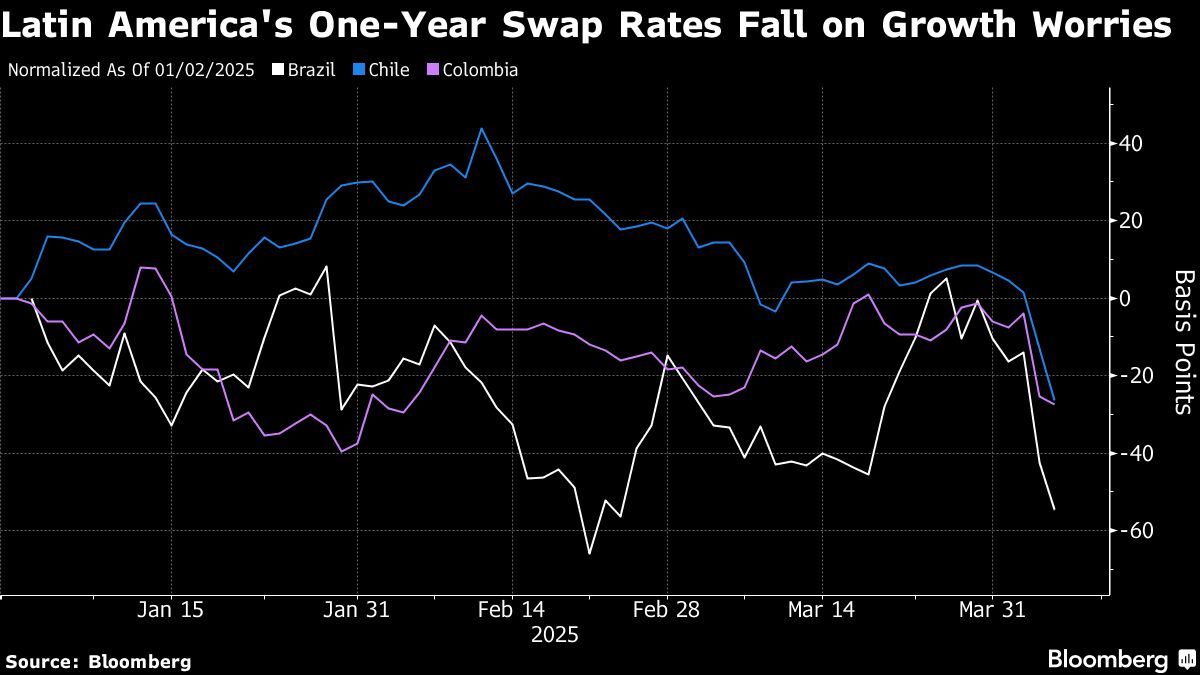
Some interest rates swaps in Brazil and Chile notched their biggest weekly drops since 2022.
(April 7): Bets on falling global interest rates are attracting emerging-market (EM) investors seeking shelter from the volatility sparked by President Donald Trump’s trade war.
The strategy involves targeting the local-currency bonds of developing countries where yields are high and central banks have plenty of room to ease monetary policy in a prolonged global trade war. It can also be expressed through so-called receivers — wagers that interest-rate swaps will fall.
The trade has put in a strong performance during the market gyrations of the last few days. While US stocks plummeted — the S&P 500 Index capped the steepest two-day slide since March 2020, wiping out some US$5 trillion (RM22.17 trillion) of value — a Bloomberg index of emerging-market local-government debt had its best week in about a month, extending year-to-date gains. Some interest rates swaps in Brazil and Chile notched their biggest weekly drops since 2022.
“The interesting trade here is in rates,” said Grant Webster, co-head of EM sovereign debt and currencies at Ninety One. “With a weaker growth outlook ahead, EM central banks are going to have a lot more room to ease.”
The bet is another example of how some emerging-market assets have been holding their own amid the volatility that has wrecked portfolios in recent weeks.
While the MSCI EM equities index wiped out the year’s gains on Monday as the tariff shocks spread, it’s still outperforming the 14% fall year-to-date for the S&P 500. Meanwhile, an index of EM currencies is still up 1.3% so far in 2025, while the dollar fell 3.5%.
Given the eye-watering gyrations across global markets, money managers said they are limiting their local currency bets to select countries and will be quick to cut losses on those that fail to perform.
Uploaded by Felyx Teoh
- Global funds hit pause on Indonesia after Prabowo policy changes
- Trump warns tariffs coming for electronics after reprieve
- Embattled billionaire Ong Beng Seng to step down from Hotel Properties
- Jentayu signs 40-year power purchase agreement for RM2.8b 162MW Sabah hydropower project
- Singapore eases monetary policy as expected, sees weaker growth in 2025
- China's March exports jump in temporary boost as Trump 2.0 heaps pressure
- Stocks rally in Asia as electronics get a tariff break
- Miti: 30 Malaysian firms set for 150 business matching sessions at Expo 2025 Osaka
- Frankly Speaking: After special review, what’s next for YNH?
- Share buybacks in vogue again amid market uncertainty

